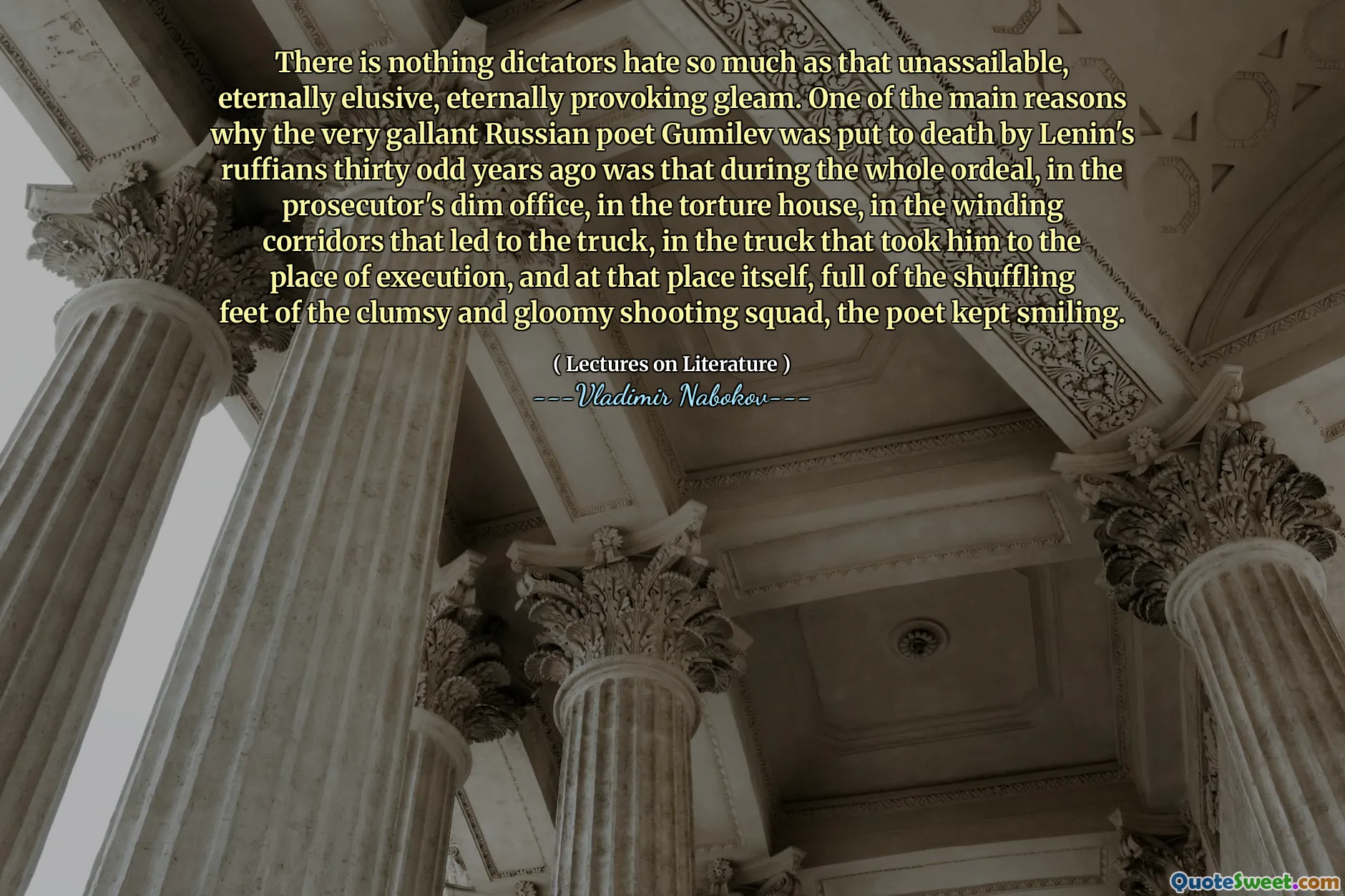
There is nothing dictators hate so much as that unassailable, eternally elusive, eternally provoking gleam. One of the main reasons why the very gallant Russian poet Gumilev was put to death by Lenin's ruffians thirty odd years ago was that during the whole ordeal, in the prosecutor's dim office, in the torture house, in the winding corridors that led to the truck, in the truck that took him to the place of execution, and at that place itself, full of the shuffling feet of the clumsy and gloomy shooting squad, the poet kept smiling.
Dictators often despise an invincible spirit that cannot be subdued or extinguished. This defiance poses a significant threat to their authority. A vivid example of this resistance can be seen in the life of the Russian poet Gumilev, who faced persecution from Lenin's regime. Despite the grim realities of his confinement and impending execution, Gumilev maintained his composure and spirit, exemplified by his enduring smile through the harrowing ordeal.
This unwavering attitude in the face of death illustrates the power of the human spirit and its capacity to challenge oppression. Gumilev's smile became a symbol of resistance, highlighting how even in the darkest moments, an individual can embody a defiant spirit that dictators fear. His story serves as a reminder of the importance of resilience and courage against tyranny.






